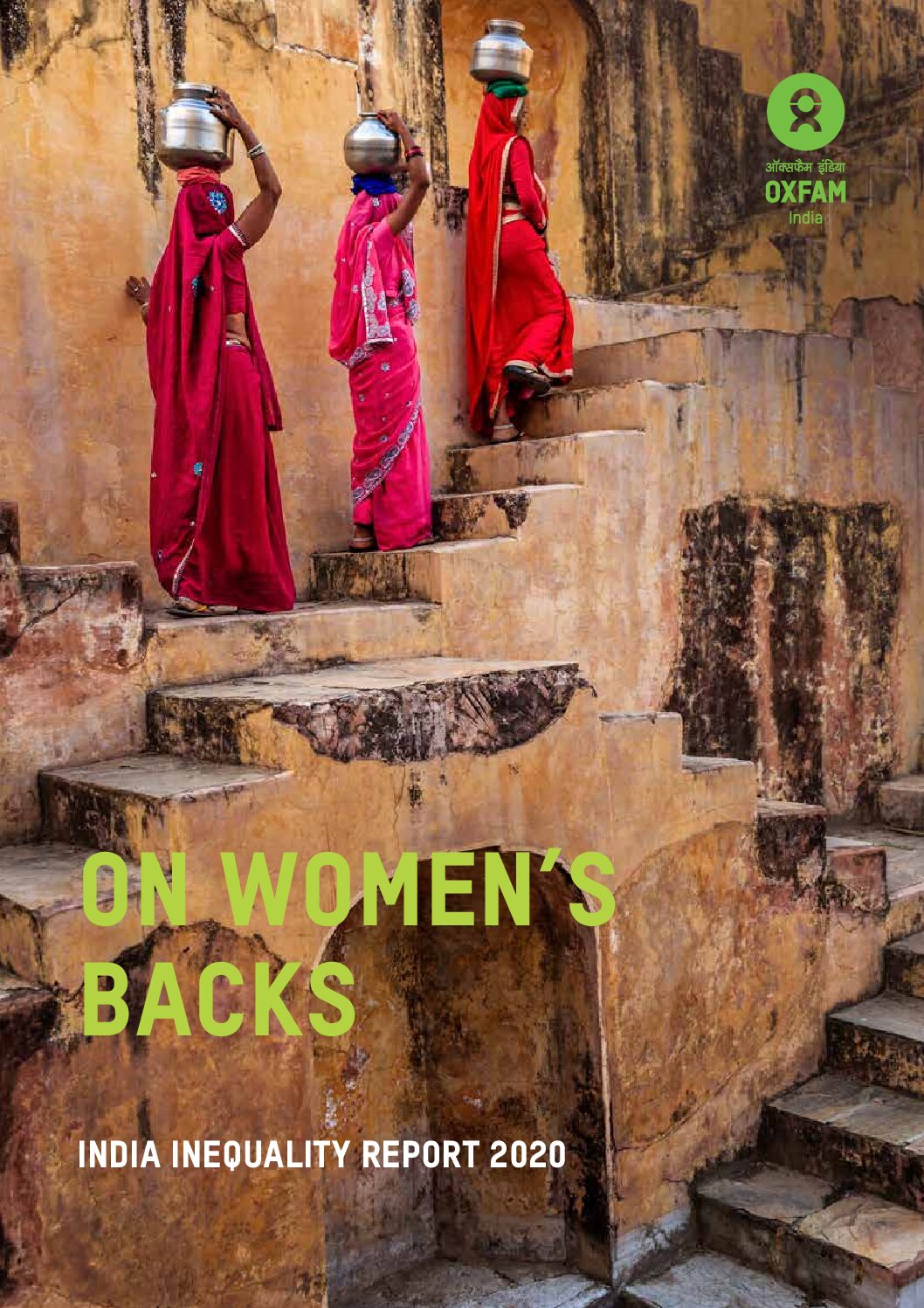
ON WOMEN’sBACKS
In the last couple of decades of analyses on women’s lives, the myth of complementarity and equality
between the sexes in the private sphere has been busted. On the ground, changes in traditional roles of
men and women and the power hierarchy they breed are slow and often contested.
This is so because social norms—a common understanding of appropriate conduct by individuals or a group of individuals—can not only underpin human behaviour but keep it in check via advantages (praise and acceptance) and penalties (from censure to violence). Social norms can be deeply gendered and patriarchal, where the man is viewed as the provider of the family and the woman as the caregiving subordinate. Women are seen and see themselves as carriers of social and biological reproduction, sustaining the care economy through physical and psychological forms of ‘unpaid care work’. 1 This makes women’s lives circumscribed by familial and housekeeping responsibilities. Even among educated, female professionals, caregiving (if not housework) prevents or lessens their representation in the workforce. 2 The lack of quality and reliable public childcare or elderly care services in India adds a huge burden on women who can enter the formal paid workforce. 3 As per the ILO, women in India spend 312 minutes/day in urban areas and 291 minutes/day in rural areas on unpaid care work. Men correspondingly spend only 29 minutes (urban) and 32 minutes (rural) on unpaid care work. 4 Heavy and unequal care work means women remain trapped in income and time poverty, and do not benefit equally from the wealth generated by our economies.
rural areas on unpaid care work. Men correspondingly spend only 29 minutes (urban) and 32 minutes (rural) on unpaid care work. 4 Heavy and unequal care work means women remain trapped in income and time poverty, and do not benefit equally from the wealth generated by our economies.